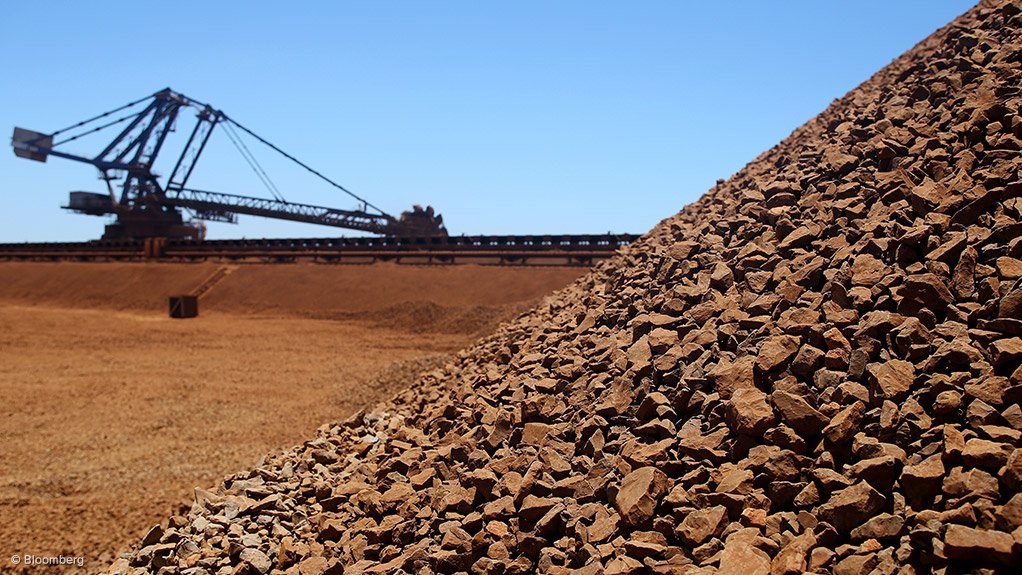Mining innovation key to success in Africa



NICKI IVORY Africa will likely remain competitive from a cost-of-mining perspective, whereas Australia will need to drive innovation to reduce costs and remain competitive
TACKLING ADVERSITY Australian mining companies are being forced to innovate and develop new technologies to improve productivity and drive efficiencies
Photo by Bloomberg
In terms of investing in Africa-based mining operations and projects, Australia’s ability to deal effectively with decreasing domestic productivity and escalating costs will be a key factor in the survival of the country’s mining activities, and innovation and the cost of mining in Africa will be key differentiators, says international advisory firm Deloitte.
Deloitte Western Australia mining leader Nicki Ivory explains that volatile commodity prices are the primary challenges currently affecting mining activities in Australia. “Commodity prices will always be one of the key drivers of mining growth, but commodity value is a factor beyond the control of miners.”
She adds, however, that business risk can be managed through proper asset management, the implementation of funding structures, the robustness of investment processes and the placement of operations on the cost curve.
“Escalating compliance pressures in the form of red [tape] and ‘green’ tape is another trend that continues to exert pressure on Australian miners,” states Ivory. She adds that, while lobby groups and industry bodies do their best to reduce this pressure, these bureaucratic hurdles remain a challenge.
She highlights that these trends are impacting on the Australian mining industry as exploration funding is being severely constrained, with consolidation continuing to take place in an effort to survive. “We are likely to see more failures unless the tide turns soon,” she warns.
Australian mining companies are, therefore, being forced to innovate and develop new technologies to improve productivity and drive efficiencies across all areas of their business. “We are seeing a greater focus on operational excellence and less focus on growth. Mergers and acquisitions in mining are not only fewer, they are also more strategic,” Ivory points out.
She adds that high costs and low levels of productivity are posing an immediate threat in the Australian mining sector in certain commodities, such as gold.
“Nevertheless, Australia remains the lowest- cost global producer of iron-ore,” she says.
Ivory warns that a longer-term threat to Australia’s mining industry is the depleting low-grade iron-ore resources, and insufficient exploration spending to replace these resources over time. “Without new resources, our mining industry will run down over time.”
African Advance
Government and legislative stability, local participation or content laws and the security of legal land titles, taking into account land ownership and rights, are key considerations for Australian mining houses wanting to invest in African exploration or mining projects, Ivory says.
She advises clients to establish reliable relationships with African governments “long before ever drilling a hole”, and stresses that this is essential to successfully building a mine on the continent.
Meanwhile, Ivory highlights the yearly Africa Down Under Conference, held in Perth, as a propellant that assists Australian companies to establish business relationships with Africa-based partners. This year’s conference will run from September 3 to 5 at the Pan Pacific Perth Hotel and the Novotel Perth Langley Hotel.
“Africa Down Under has, for the past ten years, been the biggest collaboration between Africa and Australia in the resources sector,” says Ivory, adding that African governments continue to use the conference as a platform to engage with Australia across several levels of government and business.
“Although mining has always been the main driver for the conference, oil and gas, as well as education and agriculture, continue to be part of the ongoing dialogue between the two continents,” she says.
Meanwhile, Western Australia state Premier Colin Barnett signed a memorandum of understanding in February with the Common Market for Eastern and Southern Africa during the Investing in Africa Mining Indaba, which took place in Cape Town in the same month. The objective of the agreement is to build closer relationships between Western Australia and the 19 African nations across sectors such as mining, petroleum and agriculture.
Further, Ivory points out that the Australian government is the current chair of the Indian Ocean Rim Association (IORA).
The Indian Ocean Rim comprises a distinct area in international politics consisting of coastal States bordering the Indian Ocean.
The IORA is a regional forum, tripartite in nature, which brings together and encourages closer interaction between representatives of government, business and academia.
According to Australia’s Department of Foreign Affairs and Trade, the Australian government has indicated that the country’s future lies in the Indo-Pacific region and it is keen to build the IORA’s capacity and influence across areas such as maritime safety and security, trade and investment facilitation, fisheries management, disaster risk management, academic and science and technology cooperation, as well as tourism.
“With these commitments in place, there are growing opportunities going forward for these two mining continents,” says Ivory.
Close to Home
She highlights the degree of similarity between Australia’s and Africa’s mining industries as the greatest advantage for the two countries in terms of industry collaboration.
“This ranges from geological similarities, which date back billions of years, to more current commonalities, such as having to deal with softer issues like native titles, community involvement and government pressure to use local content suppliers and meet local participation requirements,” notes Ivory.
However, while each continent faces these diverse challenges, the resource-based economies of both are exposed to the same global commodity-price pressures.
“Africa is likely to remain competitive from a cost-of-mining basis, whereas Australia will need to drive innovation to reduce costs and remain competitive,” states Ivory.
Other challenges faced by Australian miners in Africa include hostile and remote operating environments, a lack of infrastructure, the difficulty of funding new infrastructure and, more importantly, the current lack of appetite to fund exploration, she notes.
Australia’s Pioneering Spirit
Australian mining companies’ historically exploratory nature may be the country’s most important characteristic when seeking prospects in Africa, as it will ensure mining longevity and, ultimately, survival in Africa, says Ivory.
She explains that Australia’s “pioneering spirit” has delivered a comprehensive record of operating successfully in remote and often hostile environments, not only within Australia’s borders but also worldwide. “There are only a few locations that have not yet been explored by Australian miners.”
Ivory also cites Australian mining companies’ ability to understand and deal with complex community expectations as an advantage. “Our experience in terms of employment and education, as well as providing primary and secondary infrastructure, serves our miners well in the African context.”
She further notes that high health and safety standards applied to Australian mining operations also add another welcoming dimension to mining in Africa.
However, Ivory highlights that Australia can learn from miners operating in Africa in terms of patience and perseverance in dealing with red tape and inefficient government departments, and creative ownership structuring, especially in South Africa, given the country’s years of experience in implementing black economic- empowerment laws.
Ivory notes that Africa could benefit from analysing and adopting Australia’s zero-harm culture and from finding alternatives to difficult situations that will result in all parties, including the community, the environment and governments, benefiting. “Africa can also learn from Australian innovation,” she adds.
Comments
Press Office
Announcements
What's On
Subscribe to improve your user experience...
Option 1 (equivalent of R125 a month):
Receive a weekly copy of Creamer Media's Engineering News & Mining Weekly magazine
(print copy for those in South Africa and e-magazine for those outside of South Africa)
Receive daily email newsletters
Access to full search results
Access archive of magazine back copies
Access to Projects in Progress
Access to ONE Research Report of your choice in PDF format
Option 2 (equivalent of R375 a month):
All benefits from Option 1
PLUS
Access to Creamer Media's Research Channel Africa for ALL Research Reports, in PDF format, on various industrial and mining sectors
including Electricity; Water; Energy Transition; Hydrogen; Roads, Rail and Ports; Coal; Gold; Platinum; Battery Metals; etc.
Already a subscriber?
Forgotten your password?
Receive weekly copy of Creamer Media's Engineering News & Mining Weekly magazine (print copy for those in South Africa and e-magazine for those outside of South Africa)
➕
Recieve daily email newsletters
➕
Access to full search results
➕
Access archive of magazine back copies
➕
Access to Projects in Progress
➕
Access to ONE Research Report of your choice in PDF format
RESEARCH CHANNEL AFRICA
R4500 (equivalent of R375 a month)
SUBSCRIBEAll benefits from Option 1
➕
Access to Creamer Media's Research Channel Africa for ALL Research Reports on various industrial and mining sectors, in PDF format, including on:
Electricity
➕
Water
➕
Energy Transition
➕
Hydrogen
➕
Roads, Rail and Ports
➕
Coal
➕
Gold
➕
Platinum
➕
Battery Metals
➕
etc.
Receive all benefits from Option 1 or Option 2 delivered to numerous people at your company
➕
Multiple User names and Passwords for simultaneous log-ins
➕
Intranet integration access to all in your organisation




















